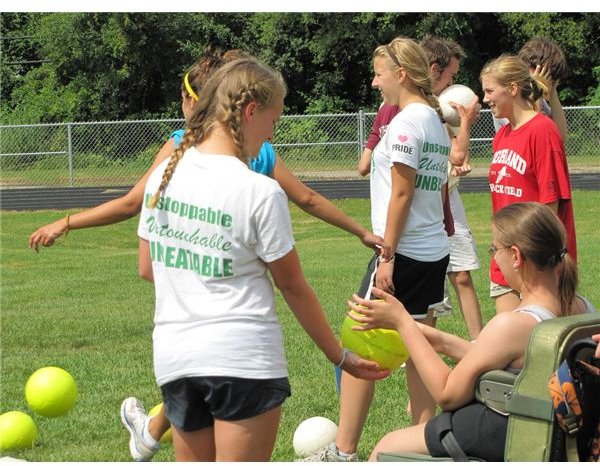Special Needs Camps: Tips to Help you Choose the Right One for Your Child
Kids with special needs often find summers very stressful, as it is a change in their regular routine. Also, they are not able to do much at home and get bored and frustrated. Summer camps can be a great way to help children have fun as well as pick up a lot of skills. However, parents need to consider many factors before sending their children to summer camps. Here are some tips to help you find the right summer camp for your child.
Day Camps vs. Overnight Camps
Some summer camps last only a few hours each day during the week. The child stays at home and is picked up and dropped back off each day of camp. These camps are more affordable than overnight camps are and work well for children who are not comfortable staying away from home.
Overnight camps can be ideal for children longing to become more independent. Staying at a camp that is equipped to deal with your child’s needs and has staff members who are comfortable as well as experienced working with special needs kids can be pivotal in your child’s life.
You must determine your child’s readiness as well as the facilities you are considering to decide which option is better for your child.
Send the Child vs. Accompany the Child
Some camps are designed with special needs kids in mind with enough counselors and helpers to assist the children. Other camps may allow a parent to accompany the child.
Letting a child go to camp alone will help him meet new people and grow. However, if your child has difficulty in social relationships, it may be very difficult for him to manage for such a long period without familiar people.
In addition, if a child has several difficulties and the parent is not comfortable with the idea of someone new caring for the child, it may be better for a parent to accompany the child than not allow the child to attend summer camp.
Regular Summer Camp vs. Special Needs Summer Camp
Some camps are inclusive camps that provide different levels of accommodation. These camps provide an opportunity for kids with and without special needs to interact. They can be ideal for siblings who wish to attend camp together, as well.
Other camps are designed only for children with special needs. Children with severe disabilities may find it difficult to fully participate in an inclusive camp and may benefit from the features and provisions of a special summer camp.
Recreational Camps vs. Therapy Camps
Some camps are meant for fun and recreation while others are designed to help children improve in specific areas such as attention, reading or physical goals. Both types of camps have their benefits and the decision must be made based on what the child does the rest of the year. For instance, a child who attends physiotherapy every day may find a physiotherapy camp more stressful than fun.
One Week vs. One Month
The duration of camps can range from a week to a month. Different children will be comfortable with different durations. For a child with special needs attending camp for the first time, a week may be best. If a child is comfortable with staying away from home, he may enjoy a one-month recreational camp. Including the child in this decision is very important.
Checklist
Here are some more factors you should look into about the camp where you are planning to send your child.
Medication: Will they be taking responsibility for making sure that your child is taking his medicines regularly? (This is especially important if your child has seizures or other medical complications)
Toileting: Do they have accessible toilets? Do they have someone to help your child with toileting?
Other daily activities: If your child is dependent, will there be someone to help your child?
Special diet and feeding: If your child needs a special diet, will they make it for your child? Will they assist with feeding (if required) A special needs summer camp will usually make such arrangements, but it is always better to confirm.
Emergency care: How close is the nearest hospital? What arrangements do they have for emergency care?
Alternate recreational activities: If the camp is designed for regular children, will they offer alternate activities in case your child is not able to do the activity that other children are doing.
Safety: Will the environment and activities be safe for your child.
Consider all these aspects when you decide on a summer camp for your child. A little bit of thought and planning can help your child have a memorable summer.
References
- Image Source: Soccer - flickr.com/clarkstonscamp
